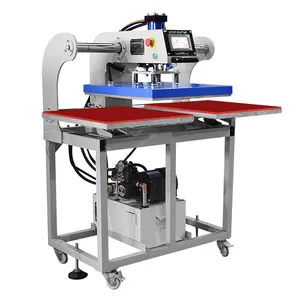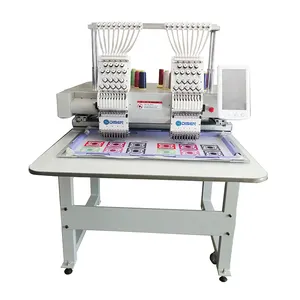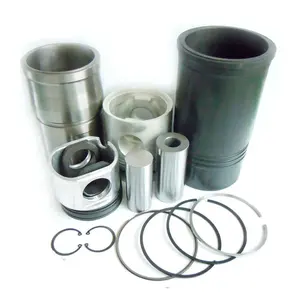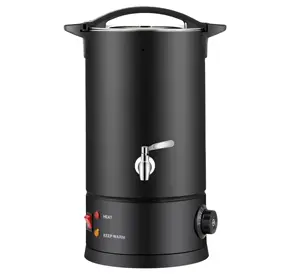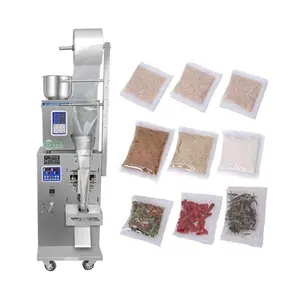Popular in your industry






























































Top categories
About vacuum cleaner factory
At the nexus of contemporary cleaning technology stands the vacuum cleaner factory, a term that encompasses more than mere production facilities, but also the avant-garde advancements within the cleaning sector. These factories are charged with the conception, manufacture, and dissemination of vacuum cleaners that address a broad spectrum of cleaning requisites, ranging from residential to commercial and industrial arenas.
Types and Applications of Vacuum Cleaners from a Factory
The vacuum cleaner factory rolls out an eclectic array of vacuum cleaners, each engineered with distinct features to tackle various cleaning contexts. Handheld variants are ideal for swift and convenient tidying in residential spaces, whereas upright models boast robust suction and greater debris capacity for both domestic and office use. Canister vacuums are lauded for their adaptability and user-friendliness across different surfaces, and robotic vacuum cleaners offer autonomous cleaning, navigating and tidying with scant human input. Industrial vacuum cleaners, crafted for sturdiness and might, are tailored to withstand the strenuous demands of construction sites and factories. Each model is the fruit of careful design, intended to surmount particular cleaning obstacles, thus generating significant commercial value and contributing to the upkeep of immaculate conditions across sectors. The vacuum cleaner factory also serves specialized segments with products like backpack vacuums for enhanced mobility and fixed vacuum systems for centralized cleaning in establishments such as hospitals and educational institutions.
Structure and Core Components of Vacuum Cleaners
A vacuum cleaner's architecture is an intricate constellation of components that synergize to effectuate proficient cleaning. The motor, the device's powerhouse, creates suction. The gearbox converts the motor's energy into the motion that powers the brush or agitator, dislodging grime from surfaces. Bearings facilitate the smooth functioning of moving parts, while the engine, often found in motorized brush heads, augments cleaning potency. The PLC (Programmable Logic Controller) acts as the vacuum's intellect, orchestrating various functions and settings. Each element is seamlessly integrated within the vacuum's chassis, constructed from premium materials to guarantee endurance and efficacy. The vacuum cleaner factory ensures these components are readily maintainable, reflecting the pragmatic design ethos inherent in every model. Advanced iterations may incorporate sensors and automated systems to boost functionality, such as dirt level detection or surface type recognition, and adjust suction strength accordingly.
Materials and Durability Features
In crafting vacuum cleaners, the material selection process strikes a deliberate balance between resilience and practicality. High-impact plastics are typically employed for the outer shell to withstand abrasion, while internal structures may utilize lightweight aluminum or composite materials to minimize weight. The incorporation of HEPA filters captures fine particulates, enhancing air quality. The vacuum cleaner factory opts for materials that not only prolong the appliance's lifespan but also amplify its performance, ensuring that each unit represents a sound investment for consumers. Durability is further bolstered by features such as reinforced hoses, stainless steel wands, and rubberized wheels that protect flooring and extend the product's longevity.
Business Usages and Power Source Options
Factories' vacuum cleaners are integral to a plethora of business environments. In the hospitality sector, they are pivotal in maintaining pristine guest rooms and lobbies. Retail establishments deploy them to keep showrooms immaculate. In office settings, they are instrumental in fostering a dust-free, salubrious workspace. The array of power source options caters to these diverse contexts—corded models deliver continuous power for thorough cleaning tasks, while cordless variants offer the liberty to clean unfettered by the proximity of electrical outlets. The vacuum cleaner factory is attuned to these commercial necessities, providing a spectrum of choices to uphold operational efficacy and cleanliness standards. Factories may also proffer specialized vacuums for hazardous material cleanup, underscoring safety and adherence to regulatory standards.
Functionality and Cleaning Efficiency
Vacuum cleaners are tailored to meet specific cleaning demands. Wet and dry vacuums adeptly handle both liquid mishaps and dry debris, proving indispensable in settings like eateries or workshops. Car vacuums come equipped with specialized nozzles to navigate crevices and upholstery. The vacuum cleaner factory concentrates on these functional attributes to ensure that the devices execute their duties with maximum efficiency, thereby enhancing cleanliness and productivity. Certain models also boast blower capabilities, adding to their versatility, and programmable settings for autonomous cleaning routines.
Features and Unique Selling Points
The distinguishing features of vacuum cleaners are what carve out their niche in a competitive landscape. Innovations such as cyclonic suction, bagless dust compartments, and HEPA filtration systems are among the unique selling propositions that a vacuum cleaner factory may highlight. These advancements not only refine the user experience but also contribute to broader health and environmental benefits by mitigating allergens and obviating the need for disposable bags. Additional enhancements may encompass noise reduction technologies, ergonomic designs for user comfort, and smart connectivity for remote operation and surveillance, further setting these products apart in the market.
Benefits and Positive Outcomes
The advantages of employing a vacuum cleaner from a reputable factory are multifaceted. They deliver a thorough clean that revitalizes the appearance of floors and furniture, foster a more hygienic environment by curtailing allergens, and save time and labor compared to conventional cleaning methods. The vacuum cleaner factory engineers its offerings to yield these favorable results, ensuring consumer gratification and brand fidelity. Environmental considerations are also taken into account, with many factories producing energy-efficient models that curtail electricity consumption and carbon emissions.
How does the variety of vacuum cleaners cater to different industry needs?
The assortment of vacuum cleaners fabricated by a factory caters to an extensive range of industry requirements through specialized designs and functionalities. Manufacturing facilities may necessitate robust machines capable of managing bulky debris, while retail spaces might favor quieter, more agile units. The vacuum cleaner factory considers the distinct demands of each sector, guaranteeing the availability of an appropriate vacuum cleaner for every application. For example, healthcare institutions benefit from vacuums equipped with HEPA filters that ensnare pathogens, whereas electronics manufacturers require units that prevent electrostatic accumulation.
What should be considered when selecting a vacuum cleaner for commercial use?
In choosing a vacuum cleaner for commercial purposes, one must weigh factors such as the expanse of the area, the nature of the debris, cleaning frequency, and power needs. A vacuum cleaner factory offers an extensive portfolio to meet diverse commercial demands, ensuring that enterprises can select a vacuum cleaner tailored to their specific cleaning challenges. Additional considerations encompass user-friendliness, acoustic levels, and the availability of spare parts and servicing, which can influence the total cost of ownership and operation.
How to maintain and ensure the longevity of your vacuum cleaner?
Proper maintenance of a vacuum cleaner entails routine inspections of filters, hoses, and attachments, as well as the prompt replacement of any parts showing wear. To ensure your vacuum cleaner's longevity, it is crucial to adhere to the manufacturer's usage guidelines and to store the device correctly post-use. A vacuum cleaner factory typically provides comprehensive maintenance instructions to assist users in keeping their vacuum cleaners in prime condition. Regularly emptying the dust container or changing bags, if necessary, and inspecting for obstructions in the suction path are also vital for sustained performance. For battery-operated models, adhering to correct charging practices is essential to maintain battery health.
